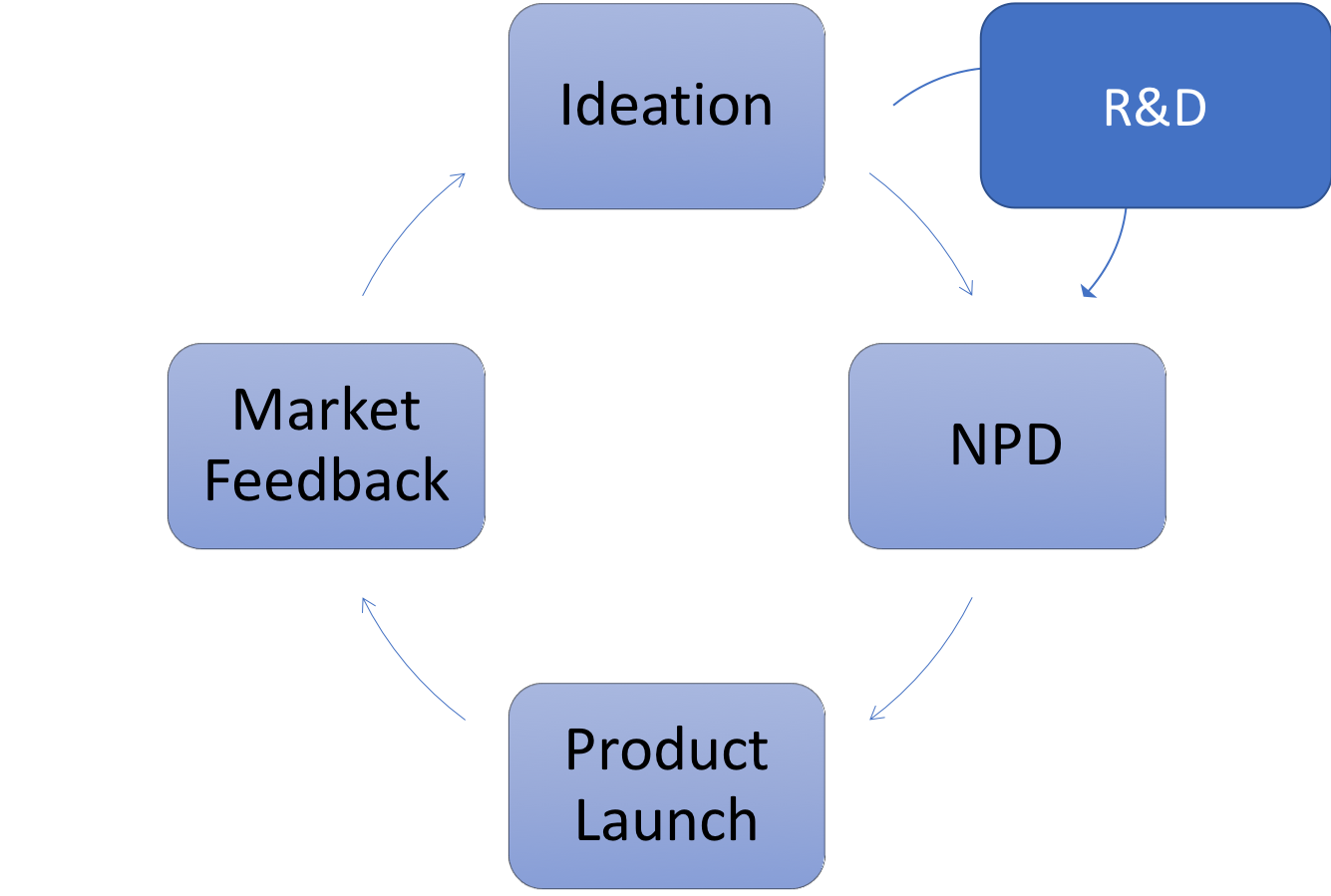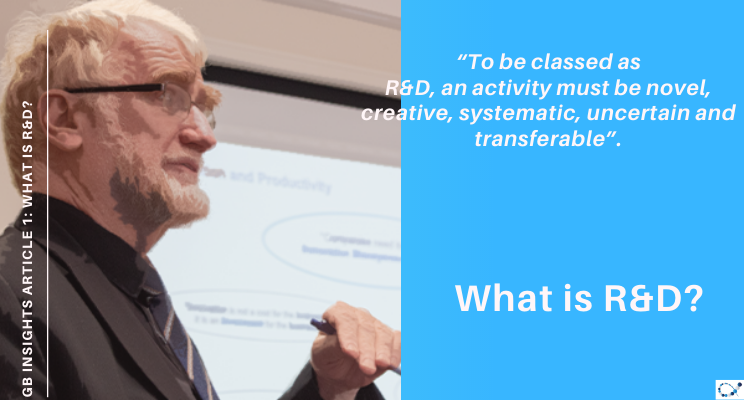What is Research and Development (R&D) and what is Innovation? What is the difference between the two? What makes R&D so important? How should it be implemented?
This article series aims to demystify the complexity of Research and Development. Using the extensive experience and knowledge in R&D, we here at GB Innovation want to give you an insight into the definitions, requirements and classification of R&D.
R&D – Definition
Research and Development (R&D) is a term used quite frequently across many different academic and industrial circles to describe the research into and the development of products and processes that will drive forward science and technology.
The Organization for Economic Cooperation and Development (OECD) is an international economic organisation with thirty-six member states. Through their Frascati Manual, they define R&D as “creative and systematic work undertaken in order to increase the stock of knowledge of human kind, culture and society.” The following five criteria must be fulfilled for an activity to be classed as R&D: novel, uncertain, creative, systematic and transferable.
Technological Uncertainty and Advancement
At its core, R&D is attempting to resolve scientific or technological uncertainty. In doing so, an R&D project must seek to achieve a scientific or technological advancement. Resolving uncertainty, however, may not guarantee commercial gain, at least in the short term, and it is this risk that often deters companies from undertaking R&D.

R&D and New Product Development
Quite often R&D is confused with New Product Development (NPD). However, NPD is the overall process, from the formulation of ideas & concepts to commercialization. As such, R&D is one possible stage in the product development process. This stage – where new knowledge is generated – comes to an end when the R&D criteria mentioned above no longer apply.

Creating New Knowledge
One key word that must be highlighted from the OECD definition when determining qualifying R&D is knowledge. Is your project pushing the frontier of technology forward? Is your project the first of its kind in the world? Is the process enhancement you are developing beyond any publicly available processes today?

If the answer is yes, you may very well be undertaking R&D. If you are unsure, feel free to consult with one of our R&D experts. Get in touch at info@gbinnovation.ie to start your path to R&D Excellence.
Up next….
In the next article of this series we will discuss the differences between basic research, applied research and experimental development.

